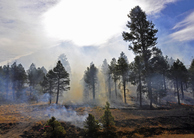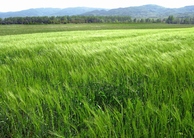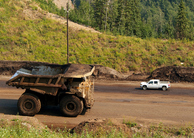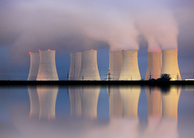|
Environmental Studies
Page 3/8 | Showing results 31 - 45 of 106
2015, Vol. 5 No. 1
The number of species becoming extinct has drawn a significant deal of attention from scientists and non-scientists alike. This research reviews recent literature citing evidence for the impact humans have had on our planet and how our biological... Read Article »
2015, Vol. 5 No. 1
Overcoming the threats of the snow leopard with immediate action may be what will save this species from extinction. This report provides a brief overview both of the challenges faced by the snow leopard and the roles local people have taken in... Read Article »
2015, Vol. 7 No. 12
The terrestrial Mojave Shoulderband Snail (Helminthoglypta (Coyote) greggi) is being considered for status and protection as an endangered species under the Endangered Species Act due to the recent construction of a mining operation in an area that... Read Article »
2015, Vol. 12 No. 1
This study emphasizes the reconstruction of sediment deposition rates, sediment concentrations of nutrients, and nutrient fluxes in Lake Erie through the creation of geological maps using geographic information system (GIS). Sedimentation rates,... Read Article »
2015, Vol. 7 No. 10
Using data collected through field research at Tyler State Park in Pennsylvania, this study examines the characteristics of Woodchuck (Marmota monax) burrows along a creek tributary. This study finds that there is a robust positive correlation between... Read Article »
2015, Vol. 7 No. 09
Energy researchers have recently taken interest in the use of switchgrass (Panicum virgatum) as a biofuel. Arbuscular mycorrhizal fungi (AMF), which are known to increase plant acquisition of nutrients through a symbiotic relationship, may be used... Read Article »
2015, Vol. 7 No. 09
Many U.S. coastal resort areas with high amenity values have experienced a high influx of both residents (full-time and part-time) and vacationers over the last two decades. This is the case for the Outer Banks of North Carolina, a narrow barrier... Read Article »
2015, Vol. 5 No. 1
Environmental communication is now an emerging and a significant curriculum from schools to research centers. The effective and efficient environmental communication occurs when learners interact with their surrounding environment/ecology in which... Read Article »
2015, Vol. 5 No. 1
In 1973, an American archaeologist named Dr. William Rathje sought to create a method that would help his students understand the intricacies of archaeological fieldwork. Dr. Rathje recognized that his students at the University of Arizona were... Read Article »
2015, Vol. 5 No. 1
Alberta's resource power lies within the energy sector; in particular, the oil and gas industry. However, this same energy sector is contributing heavily to the destruction of the landscape and is contaminating the environment. This destructive... Read Article »
2015, Vol. 5 No. 1
Aboriginal peoples of the Northern Alberta Boreal Forest have used fire knowledge and burning practices to maintain their environment for generations. Prescribed burning is vital to Aboriginal peoples' relationships with the environment, and was... Read Article »
2015, Vol. 5 No. 1
As a predominantly rural and densely populated developing nation, India is positioned at the vanguard of the global debate surrounding GMOs. As concerns related to food security mount, what transpires in India is of great importance. Citizens' collective... Read Article »
2015, Vol. 7 No. 04
Public rangelands are typically managed by a multiple-use policy that seeks to balance economic, conservation, and recreation objectives. The often semi-arid and arid public rangelands of the American west are both historically and contemporarily... Read Article »
2015, Vol. 7 No. 01
The majority of oil extracted from the Alberta oil sands is processed, diluted, and then sold to the US. The implications that arise from the oil sands production are a litany of health, environmental, and economic concerns. Despite all the implications... Read Article »
2014, Vol. 4 No. 1
In the case of Japan, which lacks any significant fossil fuel reserves (Gasparatos & Gadda, 2009, pp. 4038-4048) some alternative forms of energy production have been implemented. Japan has implemented alternative energy options such as nuclear... Read Article »
Expedited Article Review
Submit an article and get a decision fast.
If you need a fast decision, INQUIRIES Journal offers expedited processing of your submission for a small fee. Depending on the expedited review option you choose, you can receive a decision in as few as 5-days.
In addition to a shorter review period, the fee supports the journal's continued operation and open-access publishing model. Standard submissions are always free. Submit Now » - Submit an Article to Inquiries Journal -
|















